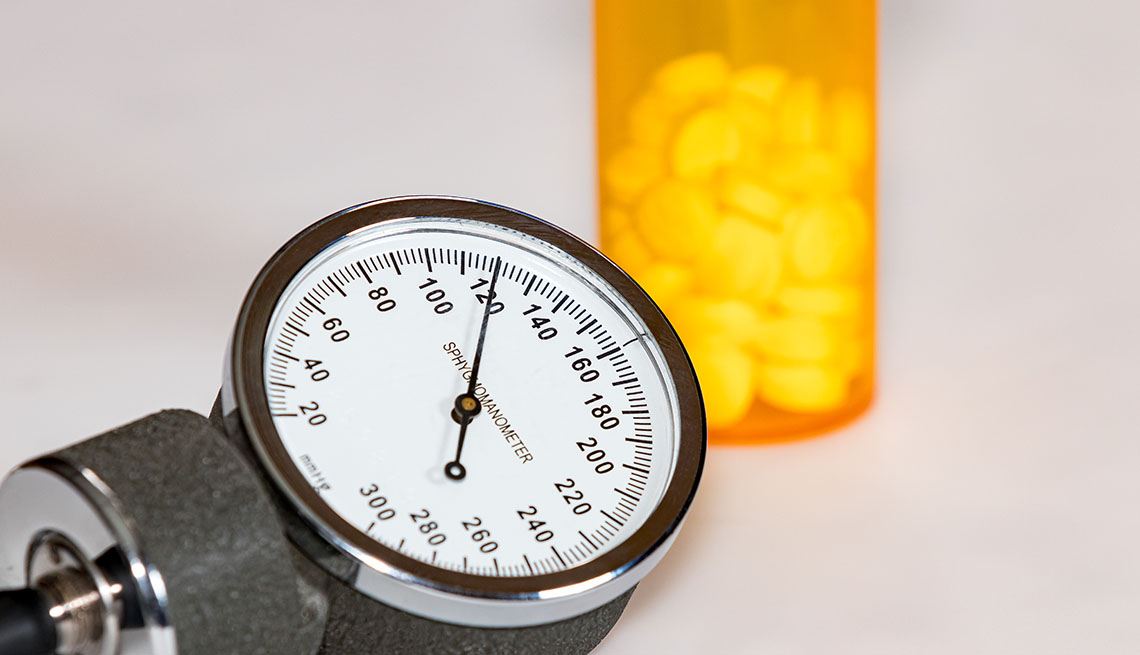
8 Blood Pressure Medications That May Help Your Memory
- Select a language for the TTS:
- UK English Female
- UK English Male
- US English Female
- US English Male
- Australian Female
- Australian Male
- Language selected: (auto detect) - EN
Play all audios:

JJ Gouin/Getty Images Facebook Twitter LinkedIn
Older adults who take certain blood pressure medications could experience a slight benefit when it comes to memory, a study suggests, adding to growing evidence that blood pressure and brain
health go hand in hand.
Researchers analyzed data from 14 studies of nearly 12,900 adults 50 and older with hypertension and found that those who took an angiotensin-converting-enzyme (ACE) inhibitor or an
angiotensin II receptor blocker (ARB) that crossed the blood-brain barrier — a border of cells that prevents many substances in the bloodstream from entering the brain — had better memory
recall across a three-year span than people who took ACE inhibitors or ARBs that stayed in the bloodstream. Eight blood pressure medications in all were identified as potentially benefiting
memory. The findings were published in the journal Hypertension in June 2021.
High blood pressure is a risk factor for cognitive decline and dementia, and research shows that lowering it can help curb those risks. Most notably, a large federally funded trial found
that intensively treating high blood pressure reduced cases of mild cognitive impairment, a precursor to dementia, by 19 percent.
Whether certain blood pressure medications come with added benefits for the brain is still in question. But this recent study “gets us one step closer to better understanding” the
relationship between blood pressure and brain health and the potential influence medications may have, says Dave Dixon, professor of pharmacy at Virginia Commonwealth University's School of
Pharmacy, who was not involved in the study.
8 Blood Pressure Drugs Linked to Better MemoryACE inhibitors:
Captopril (Capoten)Fosinopril (Monopril)Lisinopril (Prinivil, Zestril)Perindopril (Aceon)Ramipril (Altace)Trandolapril (Mavik)ARBs:
Telmisartan (Micardis)Candesartan (Atacand)Source: Hypertension; brand names are listed in parentheses.
Nearly half of adults in the U.S. have high blood pressure, and most take medicine to lower it, federal data shows. High blood pressure is defined as 130/80 millimeters of mercury (mm Hg) or
higher, though medication typically isn't recommended until blood pressure reaches 140/90 mm Hg. ACE inhibitors and ARBs are just two classes of pressure-lowering drugs; they work by acting
on the body's renin-angiotensin system, which regulates blood pressure.
A handful of medicines in these two classes have properties that enable them to penetrate the brain, where they could have a localized effect, says study coauthor Daniel Nation, an associate
professor of psychological science at the University of California, Irvine — especially because in the brain, the renin-angiotensin system “is believed to be involved in functions critical
to cognition,” the researchers write.
